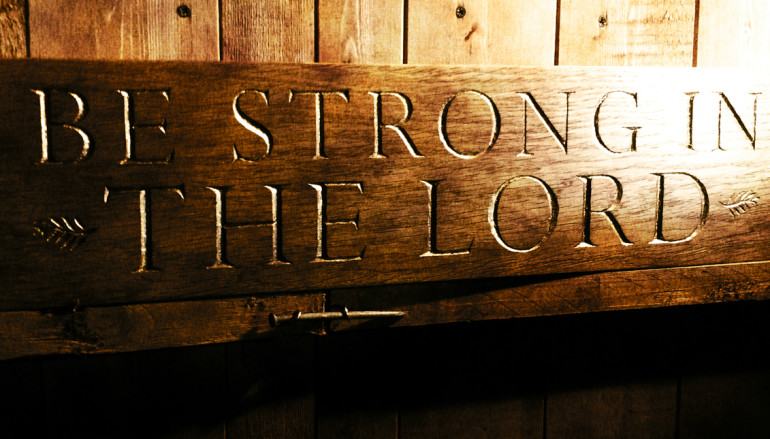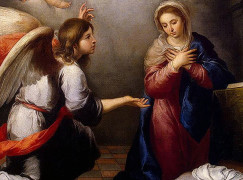

What Does A Strong Catholic Faith Look Like?
“In so far as divine love beautifies our souls, and makes us pleasing to His Divine Majesty, it is called grace; in so far as it gives us strength to do good, it is called charity; but when it reaches such a degree of perfection that it makes us not only do the good, but do so carefully, frequently and readily, then it is called devotion.” –St. Francis de Sales
PRECEPTS OF THE CHURCH
The Precepts of the Catholic Church are a description of the absolute minimum actions required of Catholics regarding the Church.
The Church uses these precepts to remind us that Christian life requires a commitment to prayer and active participation in the liturgy and sacraments. If we fall below this bare-minimum level, we can’t rightly consider ourselves to be in full communion with the Catholic Church.
Always remember: the precepts of the Catholic Church are minimum levels of participation in the life of the Church. Out of love for Christ and a desire to advance in the spiritual life, you will normally try to do far more than they require.
FIVE PRECEPTS: FROM MINIMALIST TO DEVOUT
First Precept: “You shall Attend Mass on Sunday and holy days of Obligation and rest from servile labor.”
This precept requires participating in the Eucharistic celebration, when the Christian community gathers together on the day commemorating the resurrection of the Lord (Sunday) and participation in the principal liturgical feasts that honor the mysteries of the Lord, the Virgin Mary, and the saints. It requires, also, abstinence from those labors and business concerns that impede the worship to be rendered to God, the joy that is proper to the Lord’s day, or the proper relaxation of mind and body.
From Minimalist to Devout: Attend Mass at least one more time a week. (Most Church parishes celebrate Mass every day of the year!)
Second Precept: “You shall confess your sins at least once a year.”
This precept ensures preparation for the Eucharist by the reception of the sacrament of Reconciliation, which continues Baptism’s work of conversion and forgiveness.
From Minimalist to Devout: Go to confession at least once a month, and immediately after falling to mortal sin. Also, find a regular confessor so he can give you better guidance.
Third Precept: “You shall humbly receive your Creator in Holy Communion at least during the Easter season.”
This precept guarantees as a minimum the reception of the Lord’s body and blood in connection with the Paschal feasts, the origin and center of the Christian liturgy.
From Minimalist to Devout: Receive the Sacrament of the Eucharist at every Mass, if you meet the guidelines for reception (are free from mortal sin, etc.).
Fourth Precept: “You shall observe the prescribed days of fasting and abstinence.”
This precept ensures the times of ascesis and penance that prepare us for the liturgical feasts; they help us acquire freedom of heart and mastery over our instincts.
From Minimalist to Devout: Make a habit of practicing penitential and charitable acts beyond those required by the precepts of the Catholic Church. Try to abstain from meat on Fridays throughout the year, for example.
Fifth Precept: “You shall provide for the material needs of the Church.”
This precept requires the faithful to contribute to the Church according to their own abilities.
From Minimalist to Devout: Contribute as much as possible to the material needs of the Church. Consider working toward biblical tithing: 10% of your gross income.








